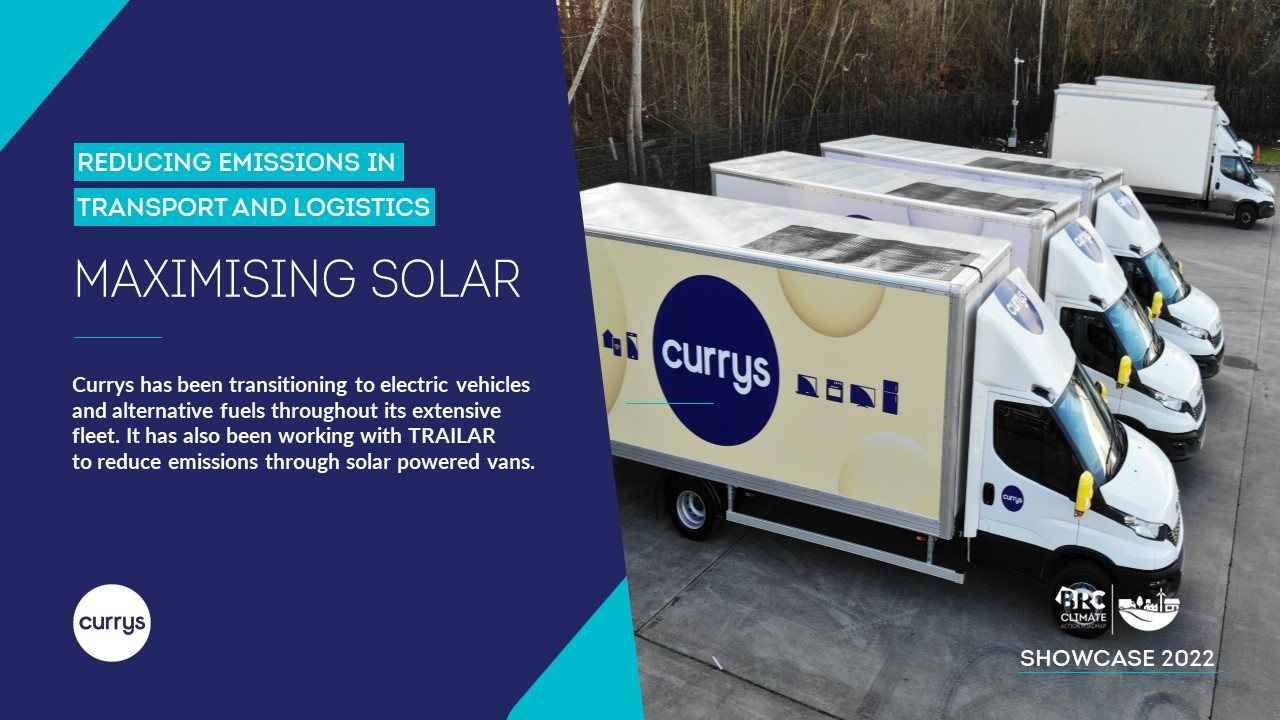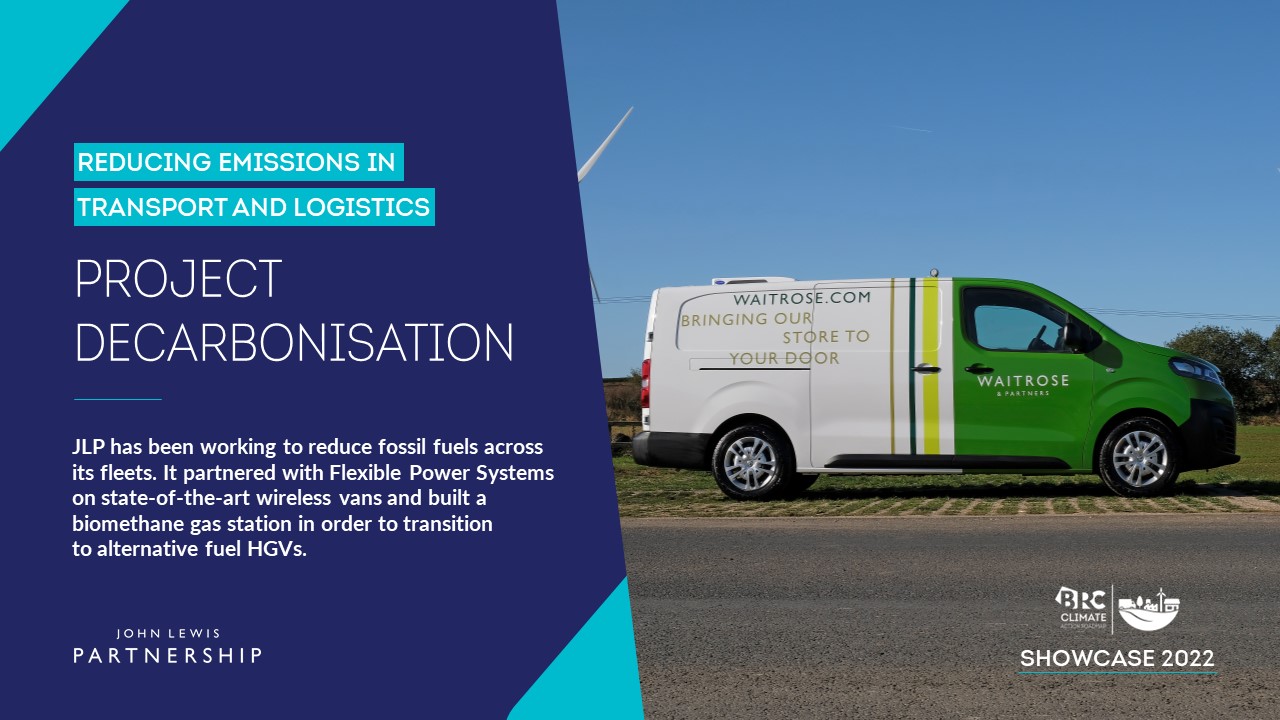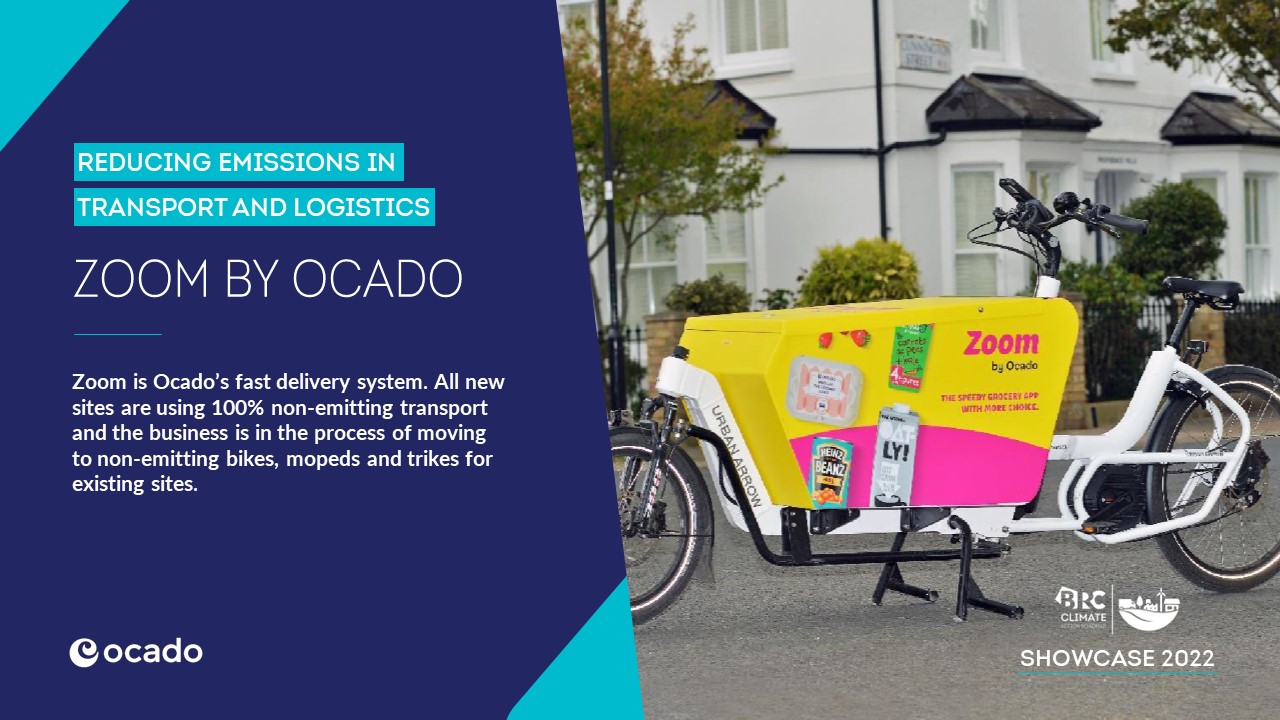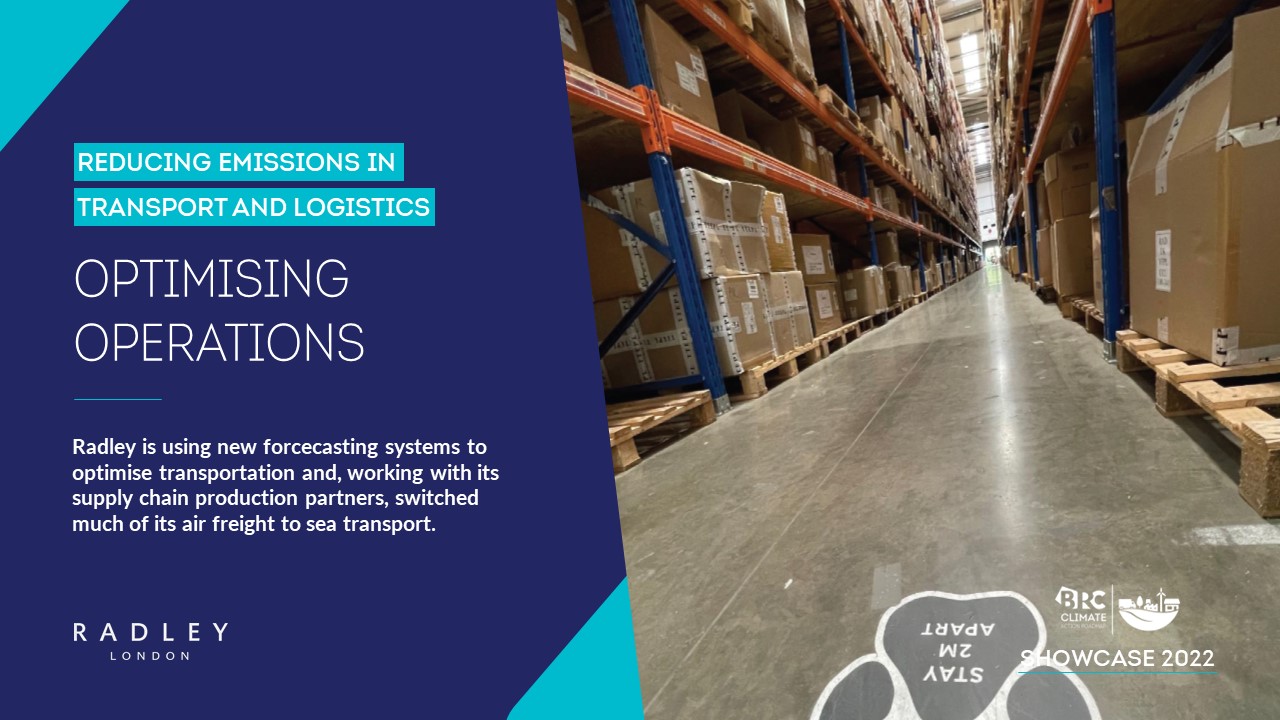Climate Action Roadmap Showcase | Tackling carbon emissions in the supply chain | Reducing waste
Driving towards net zero properties | Changing consumer behaviour
Reducing emissions in transport and logistics
Logistics is the vital link between raw material production, manufacturing, retailers and customers. However, the movement of high volumes of goods presents a significant climate impact. Transportation has been a long-standing focus of customer concerns over climate, with ‘food miles’ being top of the agenda in the early 2000s. This category is about actions taken by retailers to reduce emissions from their logistics operations and/or as part of the transition to net zero logistics. For example, implementing fuel efficient best practices for drivers, investing in low/zero carbon vehicles, or using low carbon fuels.
Currys – Using solar and analytics to cut transport emissions

LEARN MORE
Currys plc, as a member of EV100 has committed to transition 100% of company cars and small van fleet and 50% of medium to heavy fleet to electric or alternative fuel fleet by 2030. This is a key part of our commitment to have net zero emissions by 2040.
Currys currently operates a fleet of 446 Iveco Daily vans (104 x 3.5t and 342 x 7.2t) which are used 7 days per week on home delivery & installations for customers operating out of 20 UK Customer Service Centres (CSCs). Vans are leased via preferred Fleet Management Companies and are used in a robust, intensive way over a seven day working week. The lease period is for a maximum of four years to maintain compliance and a safe comfortable working environment for delivery colleagues.
Under EV100 we have been actively looking at ways to lower our CO2 emissions and to transition from ICE (internal combustion engine) to EV and alternative fuels. Across 2021 /22, 299 new vans (104 x 3.5t + 195 x 7.2t) will be delivered and a further 110 x 7.2t vans are due for delivery from May 2023. These vans are all ICE and will be used on home deliveries.
Given this current (new) fleet is still 100% ICE, we looked at the ways in which CO2 savings could be made sooner than the next fleet transition which led to the tie up with TRAILAR Solar Panels.
In partnership with TRAILAR, Currys is investing in solar powered vans to help reduce the fuel consumption of 299 vans across our network. Over a four year period, this initiative aims to reduce our CO2 by 271 tonnes a year, equivalent to 1.39 tonnes a year per vehicle. This will save an estimated 552 litres of diesel per vehicle each year.
John Lewis Partnership – Project Decarbonisation

LEARN MORE
The John Lewis Partnership (JLP) operates John Lewis & Partners department stores and Waitrose & Partners supermarkets with 80,000 employees. As a co-owned business, the Partnership is driven by our values and our belief in doing the right thing.
In many countries around the world including the UK, the transport sector has a profound impact on and contribution to the production of greenhouse gases.
The evidence of climate change is all around us and we recognise the importance of acting now and making use of available technology rather than waiting for unproven solutions to appear.
We therefore set out to make a drastic change, to lead the industry in revolutionising the way we transport our goods and - in doing so, ensure a level of innovation that would significantly lower our carbon footprint.
In accomplishing our goals, we established “Project Decarbonisation”. The first step was setting ourselves an ambitious target and we are now working hard towards our aim of removing all fossil fuel from our transport fleet by 2030, which will reduce our carbon emissions by over half a million tonnes and gets us well on the way to our ultimate target of operating a net zero carbon emission fleet.
The next step was investing in alternative fuels, new innovations and partnering with pioneering businesses such as Flex Power Systems to help us on our journey. This has led us to launch exciting new trials such as our state-of-the-art wireless electric vans. It also led us to rethink our infrastructure, building a dedicated biomethane gas filling station to enable our largest heavy goods vehicles to use a low-carbon alternative to diesel.
Ocado – Non-emitting fleets for Zoom by Ocado

LEARN MORE
Zoom by Ocado is Ocado Retail’s rapid grocery delivery service, powered by Ocado Group’s cutting-edge technology. With over 10,000 products available, customers can choose from a range five times the size of most immediacy services. This includes fresh food, everyday baby necessities, M&S food and drink, the great value Ocado own-label range, big-name brands, hyper-local suppliers, household items and much more.
Orders can be delivered within 60 minutes or a one-hour slot of a customer’s choosing and delivery backed up with the promise that if an order is late, there is no delivery charge for a customer’s next order. The service is perfect for topping up on cupboard staples, ordering something special for dinner or ordering a full shop.
There are currently three Zoom by Ocado sites, all located in London, which have so far delivered over 880,000 orders. Within the coming months, there will be further sites opening - including the first outside of the capital. Each new site brings around 130 jobs for local people across a range of roles including team leaders, drivers and warehouse staff. Zoom by Ocado also supports the local community by way of charitable donations to key organisations nearby.
With ambitious expansion plans in full swing, efforts to reduce last mile emissions are ramping up. All new Zoom by Ocado sites will operate with a 100% non-emitting fleet and existing sites will continue the final stages of working to replace the older vehicles with new non-emitting fleet of e-bikes, electric moped and trikes.
Radley – Smarter Shipping

LEARN MORE
We started at the very beginning of our product cycle. Considering the logistics and movements of everything from raw materials through to final products sent out to our stores and directly to customers.
We have revised our forecasting model to allow for greater good shipment time, so we are able to prioritise sea freight as opposed to air freight on raw material deliveries into our primary Partners, as well as goods into our distribution centre. Using this forecasting model, we can aide more accurate ordering of raw materials and production flow, while optimising the most environmentally friendly modes of transportation.
Where we can, we also consolidate shipments from our Indian Partners, as they are closely located geographically. We’ve briefed a snake formation fill of containers and the current average is close to 90% full in deliveries from our production partners, which increases shipment by shipment.
Once received into the distribution centre and products launched to the public, web orders are delivered in partnership with DPD, who we selected due to their carbon neutral commitment. As part of their Corporate Social Responsibility, they believe in being a responsible partner to the businesses they work with. Ensuring their carbon neutral commitment by measuring CO2 emissions, while striving to reduce them, and offsetting anything remaining.